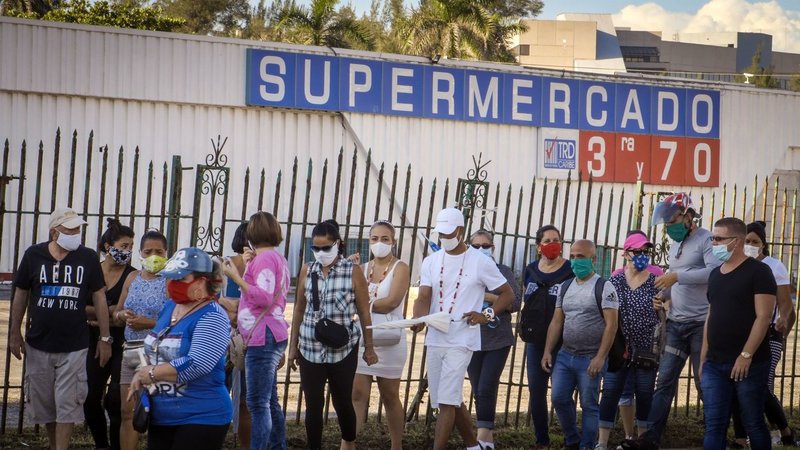Cuba's communist leaders appear to be ready to make good on long promised reforms to the island's state-controlled economy, which has been in a tailspin since the coronavirus lockdown began in March.
Even before the pandemic, the economy was in recession, suffering from reduced Venezuelan subsidies and escalating Trump administration sanctions. Then in March, Cuba banned all air and sea travel to the island, cutting off tourism — a major source of hard currency for the government.
In a speech broadcast on state TV July 16, President Miguel Díaz-Canel Bermúdez acknowledged, "We cannot continue doing the same thing ... because the current economic model isn't producing results that Cuba needs."
That same week the regime opened up dozens of new stores for shoppers with hard currency: dollars and euros. The hope is to lure those dollars and euros out of homes and into circulation.
The new "dollar stores," as Cubans call them, sell food and cleaning products and will add to the roughly 80 the government opened last year that sell mostly appliances and electronics.



 Cuba
Cuba Economics
Economics Communism
Communism


